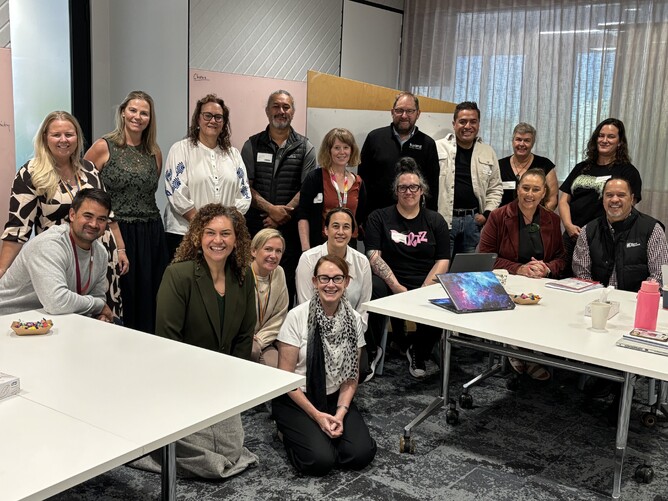An internet connection is something many of us take for granted, but for 130,000 households without internet access, being excluded from the digital world is a very real problem. Nearly everything required to be included in society today is online – applying for jobs, participating in education and accessing government services – these are just some things that are hard to do without an internet connection and access to technology.
The Todd Foundation has supported the Digital Equity Coalition of Aotearoa (DECA) since the idea was first floated at a digital call held by Internet New Zealand during the COVID-19 lockdowns in 2020. This diverse coalition shines a light on digital inclusion initiatives, identifies gaps, advocates, connects and creates space for collaboration and innovation. Todd Foundation Executive Director Seumas Fantham says, “The Foundation were involved right from the start and added some systemic change thinking from our experience with the Driving Change project to help kickstart the shape of DECA.”
DECA co-chair Kris Dempster-Rivett says that if people are to be included in society in this digital age, they require an appropriate device, an uncapped internet connection, and the skills necessary to function in the digital world. But DECA’s recent Affordable Connectivity Report, showed that many New Zealand households can’t afford internet access or individual access to a reliable device. This digital divide is becoming deeper as the cost-of-living crisis grows, meaning more digitally excluded people cannot effectively participate in our society, democracy and economy.
The impact of the digital equity initiatives that DECA supports on young people can mean the difference between accessing crucial services and information and being left behind. A recent project by DECA, in collaboration with the Government, connected youth in Auckland and families on the West Coast of the South Island with the Government's Zero Data Portal offering, which meant anyone could access a portal providing free access to essential websites, covering everything from health support to school resources, on mobile devices without using any data.
An eighteen-year-old in West Auckland who was part of this community initiative said, "Zero.govt.nz allowed me to view important information using my mobile phone anytime, anywhere. One perfect example is the information provided about StudyLink.
As a Year 13 student planning to go to university, I know that StudyLink is quite a long process, and you need a very good understanding before applying. Zero.govt.nz has provided me with enough information to successfully apply for StudyLink, which will contribute to my studies for next year."
“The Todd Foundation was instrumental in establishing DECA in 2020,” Kris says.
“The funding and continuing expertise provided by the Todd Foundation means we can focus on being a hub for the digital inclusion community, supporting and advising these kinds of grassroots causes working to serve communities and families impacted the most by the digital divide.”



